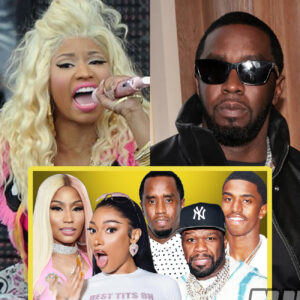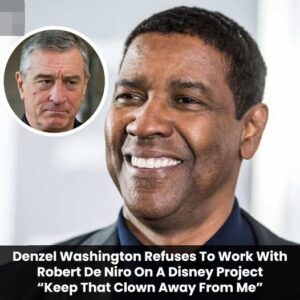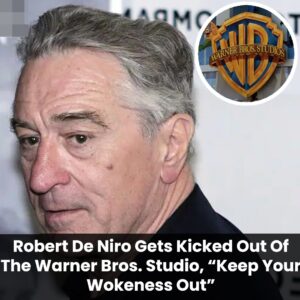## The Hidden Hands of Hip-Hop: Kanye West’s Revelations and Industry Power Dynamics
In a recent interview on the “Download Podcast,” Kanye West unveiled startling allegations about the powerful figures behind the scenes in the music industry, focusing particularly on Lucian Grainge, CEO of Universal Music Group (UMG).
Kanye’s claims delve into a labyrinth of conspiracies, control, and exploitation that underscore the darker facets of the music industry. His revelations paint a picture of a complex web where industry moguls wield immense influence over artists, extending far beyond the music they produce.

### The Lucian Grainge Allegations
Kanye West’s allegations place Lucian Grainge, who has been CEO of UMG since 2010, at the center of a purported network of control and exploitation. Kanye referred to Grainge as “Drake’s baby daddy,” implying that Drake, one of the most successful artists of the past decade, is under the sway of Grainge.This metaphor suggests that Drake’s career and successes are not entirely his own but are heavily influenced by Grainge’s directives.
Grainge, according to Kanye, has connections to powerful figures who control African banks, hinting at a much broader and more insidious influence. Kanye’s assertion that Grainge “works for people who control the banks in Africa” suggests a colonialist exploitation of African resources and economies, allegedly benefiting a select few in the music industry.
### Rodney “Lil Rod” Jones’ Lawsuit
Kanye’s interview ties into a lawsuit filed by producer Rodney “Lil Rod” Jones against Sean “Diddy” Combs. The lawsuit not only targets Diddy but also names Lucian Grainge as a defendant, alleging his involvement in activities far beyond the scope of the music business.
According to Lil Rod, Grainge and Diddy engaged in highly inappropriate and illegal activities, including sex trafficking and providing drugs at parties.
The lawsuit claims that Grainge visited Diddy’s homes in Miami and Los Angeles, where they allegedly disappeared for hours, raising suspicions about their activities.
Lil Rod further alleged that Grainge sponsored and attended parties with sex workers and underage girls, and that Diddy had hidden cameras to record compromising footage of guests, including Grainge. These recordings allegedly serve as leverage, potentially explaining Grainge’s vehement denial and legal actions to dismiss the claims.
### Industry Exploitation and the Role of Executives
The allegations against Grainge and other executives highlight a longstanding criticism of the music industry: the exploitation of artists, particularly in the hip-hop and rap genres.
Executives like Grainge and Lyor Cohen, former head of Def Jam Recordings, have been accused of profiting from the struggles and tragedies of black artists. Cohen, in a controversial interview with The Breakfast Club, admitted to signing artists who promote substance abuse, citing business necessity over moral responsibility.
Dame Dash, co-founder of Roc-A-Fella Records, has been vocal about such exploitation. He accused Cohen of being a “culture vulture,” profiting from conflicts and violence within the hip-hop community.
Dash claimed that executives like Cohen use divide-and-conquer strategies to pit artists against each other, ensuring a steady stream of profitable drama and violence.
### The Sinister Side of the Music Industry
One of the most disturbing aspects of Kanye’s and others’ allegations is the notion that record labels take out life insurance policies on artists, making them more valuable dead than alive.
This theory gained traction following the deaths of iconic artists like Michael Jackson, Prince, and Whitney Houston, as well as younger rappers such as King Von and Drakeo the Ruler.
Comedian and actor Katt Williams also echoed these sentiments, suggesting that the deaths of young rappers are not coincidental but rather part of a calculated business model where someone benefits financially from their demise.
### Drill Music and Exploitation
Drill music, a genre known for its raw portrayal of street life and violence, is often cited as an example of how the industry exploits artists. Since 1987, over 90 rappers have been killed in their hometowns, with murder being the leading cause of death for hip-hop artists.
Executives are accused of signing artists who produce music that glorifies gang culture and violence, creating a cycle of real-life tragedy that fuels their profit margins.
### The Broader Implications
Kanye’s allegations and the ensuing discussions reveal a deeper issue within the music industry: the systemic exploitation of black artists. While these claims are still subject to legal scrutiny, they underscore the need for greater transparency and accountability in the industry.
The potential for abuse of power by executives who control not only the artists’ careers but also their personal lives raises serious ethical and legal questions.
The broader implications of these allegations suggest a music industry that thrives on manipulation and control, often at the expense of the very artists it purports to support.
Whether through exploitative contracts, life insurance policies, or strategic manipulation of personal and professional conflicts, the industry’s dark side is a stark contrast to the glamour and success it often portrays.
### Conclusion
Kanye West’s explosive claims against Lucian Grainge and the revelations from Lil Rod’s lawsuit shed light on the murky depths of the music industry. These allegations, while still unproven in court, highlight the need for systemic change and greater protection for artists.
As the industry grapples with these accusations, the voices calling for reform grow louder, demanding an end to the exploitation and a reimagining of what ethical success in music should look like.
News
Drama in the Ring! Tyson Fury Terminates John Fury’s Role as Trainer After Brutal Upset by Oleksandr Usyk
In a dramatic turn of events, Tyson Fury has decided to terminate his father John Fury’s role as his trainer following a brutal upset by Oleksandr Usyk. The unexpected loss has sent shockwaves through the boxing community and led to…
(VIDEO) Megan Thee Stallion BAITS Nicki Minaj into another rap beef? | 50 Cent DRAGS Diddy’s son Christian
**Christian Combs Disses 50 Cent and 50 Responds: A Clash of Hip-Hop Titans** In the realm of hip-hop, beefs and controversies are almost as common as chart-topping hits. Recently, a new chapter unfolded in the ongoing saga between Christian Combs,…
Breaking: Gordon Ramsay Throws Robert De Niro Out Of His Restaurant, “Don’t Come Back Here You Woke Baby”
In a dramatic and unexpected turn of events, renowned celebrity chef Gordon Ramsay has made headlines by reportedly throwing Academy Award-winning actor Robert De Niro out of his restaurant. The incident, which has sparked widespread media attention and public debate,…
(VIDEO) Joe Rogan & Matthew McConaughey Exposes 7 Actors Hollywood BETRAYED
**Unveiling the Dark Side of Hollywood: The Stories of Matthew McConaughey, Keanu Reeves, and Wesley Snipes** Hollywood, often seen as a dreamland of glitz and glamour, has a hidden underbelly that reveals a starkly different reality for some of its…
Breaking: Denzel Washington Rejects $100 Million Disney Offer to Work with ‘Woke’ Robert De Niro, ‘He’s a Creepy Old Man’
In a recent turn of events that has left Hollywood in a state of shock and contemplation, Denzel Washington, a figure synonymous with integrity and talent in the film industry, has made headlines by rejecting a colossal $100 million offer…
Breaking: Robert De Niro Gets Kicked Out Of The Warner Bros. Studio, “Keep Your Wokeness Out”
In a shocking turn of events that has sent ripples through Hollywood, iconic actor Robert De Niro was reportedly thrown out of Warner Bros. Studios. The reason cited? Spreading his “creepiness.” This incident has sparked intense debate and controversy, leaving…
End of content
No more pages to load











